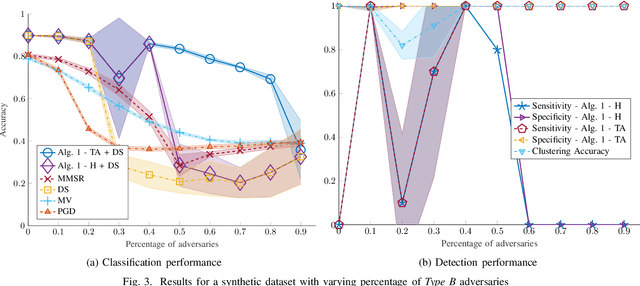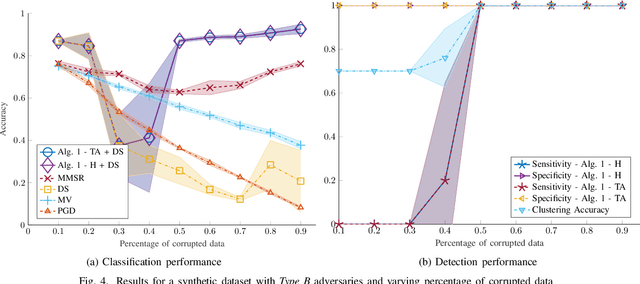Detecting adversaries in Crowdsourcing
Paper and Code
Oct 07, 2021



Despite its successes in various machine learning and data science tasks, crowdsourcing can be susceptible to attacks from dedicated adversaries. This work investigates the effects of adversaries on crowdsourced classification, under the popular Dawid and Skene model. The adversaries are allowed to deviate arbitrarily from the considered crowdsourcing model, and may potentially cooperate. To address this scenario, we develop an approach that leverages the structure of second-order moments of annotator responses, to identify large numbers of adversaries, and mitigate their impact on the crowdsourcing task. The potential of the proposed approach is empirically demonstrated on synthetic and real crowdsourcing datasets.
* Full version of ICDM 2021 short paper
 Add to Chrome
Add to Chrome Add to Firefox
Add to Firefox Add to Edge
Add to Edge